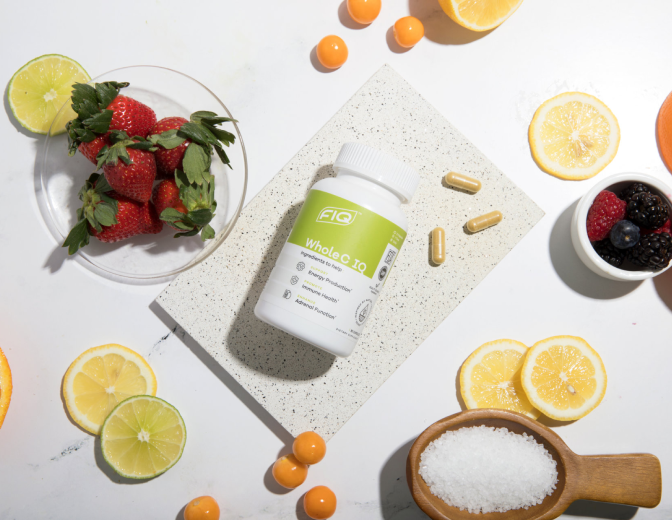The term “nootropic” has become well-recognized by those looking to enhance focus naturally. These compounds are great for momentary focus and concentration, but their benefits span far beyond the momentary attention-sapn.
What are Nootropics?
Nootropics are natural, synthetic, and semisynthetic substances that enhance brain function. They do so by: (2)- stimulating neurotransmitter release and receptor function.
- increasing blood flow and nutrient supply to the brain.
- boosting the production of brain-protective proteins and fatty acids.
- protecting brain tissue from oxidative stress and damage.
- Cognitive function
- Memory disorders
- Brain trauma
- Attention and focus
Nootropic Herbs
Bacopa monnieri
This herb, native to India and Australia, has been used for centuries in traditional Aryuvedic medicine. Several therapeutic compounds have been identified in this plant, but most of its cognitive benefits have been linked to its saponins (3).Bacopa has been shown to improve cognitive function through visual tracking, math testing, and other cognitive performance tasks while also demonstrating calming effects via improved mood and lower cortisol levels (4). Other studies have shown that Bacopa also has anxiolytic effects by modulating GABA receptors (5).
Multiple studies have shown increased reaction time and attention speed with Bacopa supplementation (6). Elderly people who were given Bacopa showed improved memory recall and retention (7). Another study also showed improved memory function via delayed word recall as well as enhanced focus in elderly individuals (8).
In vitro studies have found that Bacopa reduces the buildup of β-amyloid plaque in neurons, the metabolic waste product implicated in Alzheimer’s and dementia (9).
Bacopas cognitive-enhancing effects are attributed to: (3)
- Its antioxidant effects on neurons.
- Modulation of choline activity and reduction of acetylcholine breakdown/clearance.
- Optimization of dopamine, serotonin, norepinephrine, and their derivatives.
- Enhanced blood flow to the brain.
Ginkgo Biloba
This herb is well recognized for its cognitive-enhancing effects in various age groups, especially in adults facing age-related cognitive decline (10).Ginkgo shows positive influences on working memory (11). Working memory is different from short-term or long-term memory. It is the ability to temporarily hold information in the mind in order to complete a task. It’s involved in decision-making, reasoning, and certain behaviors. If you’ve ever walked into a room and forgot why you went in there, that’s a short-circuiting of working memory capacity.
Gingko also helps to improve Alzheimer’s disease and cognitive decline in the elderly (12).
Gingko improves these various facets of brain function via:
- Antioxidant properties and free radical scavenging (13).
- Increasing and modulating neurotransmitter production and receptor binding (13).
- Cholinergic properties, increasing acetylcholine and production and reducing its clearance(14).
- Stimulate neurogenesis in the hippocampus (15).
Golden Root (Rhodiola Rosea)
Rhodiola is a well-known adaptogenic herb that promotes physical performance and stress resiliency. In addition to enhancing physical wellbeing, it also possesses potent mental performance and cognitive-enhancing effects.Compared to the placebo, Rhodiola significantly improved the mental performance of cadets given cognitive tasks despite facing physical fatigue and stress (16).
When Rhodiola was given to students for 20 days during a stressful examination period, they experienced less mental fatigue, better physical performance, and greater neuromotor skills compared to the placebo group (17).
Similar results were seen in the mental and cognitive performance of young doctors working the night shift when taking Rhodiola. They showed better short-term memory function, audio-visual perception, mathematics performance, concentration, and less overall mental fatigue when taking Rhodiola compared to their performance when they didn’t take it (18).
Rhodiola appears to show the greatest influence on cognitive performance at lower doses (16). It improves mental acuity, memory, and concentration via: (19)
- Neuroprotective influences on the brain and nervous system.
- Enhancing neurotransmitter production and receptor function.
- Improving the body's physical resiliency to stress and fatigue.
- Reducing anxiety and improving depressive symptoms.
- Enhancing neuro-muscular communication.
Brain-Enhancing Molecules
Our bodies produce several endogenous nootropics on their own. These are natural and necessary components of healthy nervous system growth, maintenance, repair, and function. While our body can synthesize many of these molecules, dietary intake is also necessary for many, like choline, because we don’t produce sufficient amounts of them (20).Others are beneficial to the brain and nervous system when taken in addition to what our bodies produce.
Phosphatidylserine (from sunflower lecithin)
Phospholipids are important fats that make up the outer membranes of cells and their organelles. Phosphatidylserine is an important phospholipid for all of the body’s cells, but especially for myelin, which are the sheaths that encase nerve cells (21).Phosphatidylserine is also an essential molecule for integrating DHA into the brain (21).
A large meta-analysis on the cognitive impacts of supplemental phosphatidylserine found that this molecule beneficially influences nearly every facet of cognitive functioning including: (21)
- Optimizing neurotransmitter signaling, binding, release, and function.
- Maintaining the structural integrity of the nervous system.
- Neuroprotection and preventing deterioration of neurons.
- Improves short-term and long-term memory function.
- Supports learning, memory, and recall tasks.
- Improves focus, concentration, problem-solving skills, reasoning, communication skills, and decision-making.
Alpha-GPC
Alpha-glyceryl-phosphorylcholine is a by-product of phosphatidylcholine (another important phospholipid made from choline) and a direct precursor to acetylcholine, a vital neurotransmitter. It has also been shown to beneficially impact dopamine function in the brain to enhance motivation (22).Alpha-GPC helps to enhance communication between neurons in the brain, thereby enhancing all outcomes of cognitive function (23). Studies have also shown alpha-GPC to be beneficial for Alzheimer’s and dementia patients in improving memory and neurophysiologic function (24, 25).
Alpha-GPCs cognitive-enhancing effects can be attributed to:
- Cholinergine effects (enhancing acetylcholine production and function, thereby enhancing communication between neurons) (20, 26).
- Dopamine modulating effects (22).
- Maintenance and repair of the structural integrity of the brain and neurons (27).
DMAE L-Bitartrate
Deanol or 2-(dimethylamino)ethan-1-ol is a precursor to choline that can be found in fish and shellfish (28). Choline is produced endogenously in the liver, but our bodies do not make enough of it to maintain health, so it is considered an essential nutrient (20).DMAE has been shown to increase acetylcholine levels in the brain, improve mood and alertness, increase lucid dreams, improve sleep, and enhance memory function (28). It also acts as a free radical scavenger (30).
Huperzine A
Huperzia serrata is a traditional Chinese Medicine herb that has been used for centuries to support cognitive function. The molecule responsible for its brain-boost effects has been identified as huperzine A.This molecule has been shown to improve memory and cognition and possess neuroprotective properties (31). Several studies have assessed its benefits in Alzheimer’s disease, with promising results for improving cognition, memory, and attention (32).
Huperzine A enhances brain function by:
- Reducing amyloid plaque production (33).
- Protecting neurons from damage (34).
- Blocking the enzyme that breaks down acetylcholine, thereby allowing for greater cholinergic action in the brain and nervous system (35).
- Promoting neurogenesis in the brain and hippocampus (36).
Natural Focus and Neuronal-Supporting Nutrients
Focus IQ contains each of these ingredients. This formula was designed to naturally boost concentration, recall, and focus in-the-moment and to support long-term cognitive health.Don’t wait until cognitive impairments, mental fatigue, and memory issues start creeping in. Neurogenesis declines with age and happens at a very slow rate, if at all, as time goes on. Take steps to protect your precious neurons with natural nutrients that keep your brain sharp, attuned, and focused both now and in the future.




